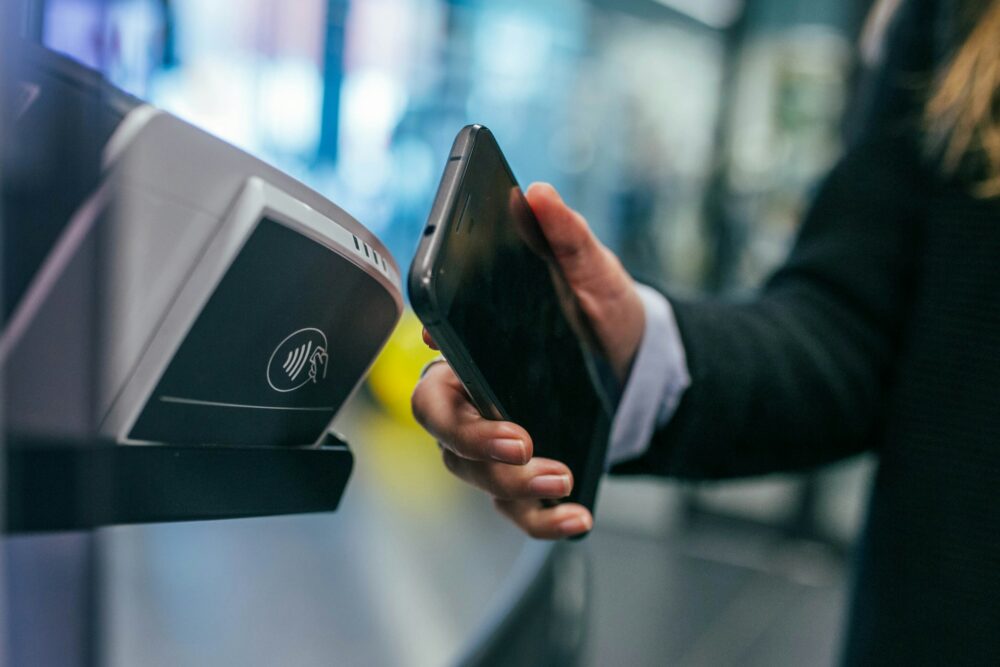Fintech
How Fintech Company Klarna is Competing with Traditional Banks
Klarna’s new cashback feature credits amounts directly to users’ Klarna accounts, usable for payments or transfers. Expanding its free “Klarna Guthaben” account to multiple countries, Klarna now competes with traditional banks, offering 3.58% interest. This move, alongside its planned IPO, positions Klarna to attract and retain customers in a competitive fintech market.

Klarna is giving the checking account an update and introducing a cashback function: Customers can now receive refunds for every purchase made via the Klarna app, up to ten percent of the purchase value, depending on the retailer.
Unlike many other loyalty programs, there are no vouchers but the amount is credited to the Klarna account “like real money” and can be used for payments and to settle outstanding Klarna invoices or transferred to your own bank account.
One app for everything: What is the truth behind the super app myth?
At the same time, the fintech is expanding with the free account now called “Klarna Guthaben”, which has been available in Germany for almost two years. It is now also available in the USA as well as in Austria, Belgium, Finland, France, Italy, Ireland, the Netherlands, Portugal, Spain and the home market of Sweden.
The new services are intended to allow consumers to “earn money while shopping and conveniently manage their money in their Klarna account,” said Sebastian Siemiatkowski, co-founder and CEO of Klarna. Automatic savings plans also enable regular savings in sub-accounts.
Cards, interest, accounts
The new cashback offer is reminiscent of another fintech that has recently been focusing more and more on classic banking products. The German neobroker Trade Republic launched its so-called “Save Back” function in the spring . This cashback variant also gives money back when you shop with the company’s own Visa card – which can then automatically flow into a stock savings plan if customers want.
What the two fintech companies also have in common is that their offerings are breaking into the sphere of traditional banks. Trade Republic recently introduced a free checking account . Customers can use it to transfer money in real time, make deposits and withdrawals in the app, and set up direct debits. Both fintechs also advertise attractive daily savings accounts to attract customers: Klarna currently offers 3.58 percent interest on deposits, while Trade Republic offers 3.75 percent.
Klarna as a competition for traditional banks
This means they are competing with traditional banks, which tend to be more cautious when it comes to interest rates and sometimes charge high fees for current accounts. At the same time, the top overnight interest rate and the combination of monetary cashback with the account are offers that are not available at many neobanks.
Both fintechs actually started out very differently. Trade Republic was founded as a mobile trading platform that enables commission-free investing in stocks and ETFs. The fintech now has four million customers in 17 European countries. Since the turn of the year, Trade Republic has also had its own full banking license.
Klarna grew up as a payment service provider primarily with “Buy Now, Pay Later” (BNPL), but has now built up a very broad offering around its shopping platform. In this country, 215,000 people already have a Klarna account.
In the long term, however, the company wants to scale back its business with revolving loans, which are often risky for consumers . Klarna has repeatedly received a lot of criticism for its BNPL business because the installment payments have a reputation for tempting careless consumers, especially young people, to build up debt. The EU has therefore also tightened the rules for BNPL payments.
Klarna is preparing for its IPO
For fintech companies like Klarna and Trade Republic, the new savings and account offers are an important factor in attracting new customers and retaining them in the long term. The fact that the Klarna account is now available in many other European countries and in the USA is also an important step for the Swedish payment provider with regard to its planned IPO .
The fintech company, founded in 2005, was once the most valuable start-up in Europe, but after the interest rate turnaround and the collapse of fintech financing, the valuation fell significantly: from 45.6 to 6.7 billion US dollars. The fintech is currently planning its IPO, even if it will probably not take place this year. This year, the main focus is therefore on showing that Klarna can be profitable again.
In recent years, expansion into the USA in particular has generated costs, but recently Klarna’s losses have shrunk and efficiency has increased thanks to the use of artificial intelligence (AI). An AI-supported assistant is already taking over the work of 700 full-time human employees . The USA is now Klarna’s most important market, and there is also great potential here to attract new customers by offering accounts and cards.
What customers need to know
For German users, nothing will change except the name of the account as a result of the expansion, as the checking account has been available here for a long time. Klarna also does not need a bank partner for the rollout, as the Swedish fintech is itself a bank. If Klarna were to experience problems, customers’ deposits in the EU markets would be protected by the Swedish deposit guarantee system up to an amount of 1,050,000 Swedish kronor (around 91,000 euros).
This is different from Trade Republic, by the way: Despite the full banking license, deposits are still secured with the partner banks Deutsche Bank, JP Morgan and HSBC Continental Europe. Users can check in the app which bank their money is with. At these banks, too, deposits are protected up to 100,000 euros in the event of a bank bankruptcy.
At both Trade Republic and Klarna, the cashback function will not be the last innovation to retain customers. It is conceivable, for example, that Klarna will also offer classic loans in the future. However, CEO Siemiatkowski does not want to enter securities trading like Trade Republic – that would be too different from the current business model.
__
(Featured image by Jonas Leupe via Unsplash)
DISCLAIMER: This article was written by a third party contributor and does not reflect the opinion of Born2Invest, its management, staff or its associates. Please review our disclaimer for more information.
This article may include forward-looking statements. These forward-looking statements generally are identified by the words “believe,” “project,” “estimate,” “become,” “plan,” “will,” and similar expressions. These forward-looking statements involve known and unknown risks as well as uncertainties, including those discussed in the following cautionary statements and elsewhere in this article and on this site. Although the Company may believe that its expectations are based on reasonable assumptions, the actual results that the Company may achieve may differ materially from any forward-looking statements, which reflect the opinions of the management of the Company only as of the date hereof. Additionally, please make sure to read these important disclosures.
First published in t3n. A third-party contributor translated and adapted the article from the original. In case of discrepancy, the original will prevail.
Although we made reasonable efforts to provide accurate translations, some parts may be incorrect. Born2Invest assumes no responsibility for errors, omissions or ambiguities in the translations provided on this website. Any person or entity relying on translated content does so at their own risk. Born2Invest is not responsible for losses caused by such reliance on the accuracy or reliability of translated information. If you wish to report an error or inaccuracy in the translation, we encourage you to contact us

-

 Africa6 days ago
Africa6 days agoAir Algérie Expands African Partnerships
-

 Crypto2 weeks ago
Crypto2 weeks agoEthereum Pushes AI Integration With ERC-8004 and Vision for Autonomous Agents
-

 Markets22 hours ago
Markets22 hours agoRising U.S. Debt and Growing Financial Risks
-

 Business1 week ago
Business1 week agoDow Jones Near Record Highs Amid Bullish Momentum and Bearish Long-Term Fears
























